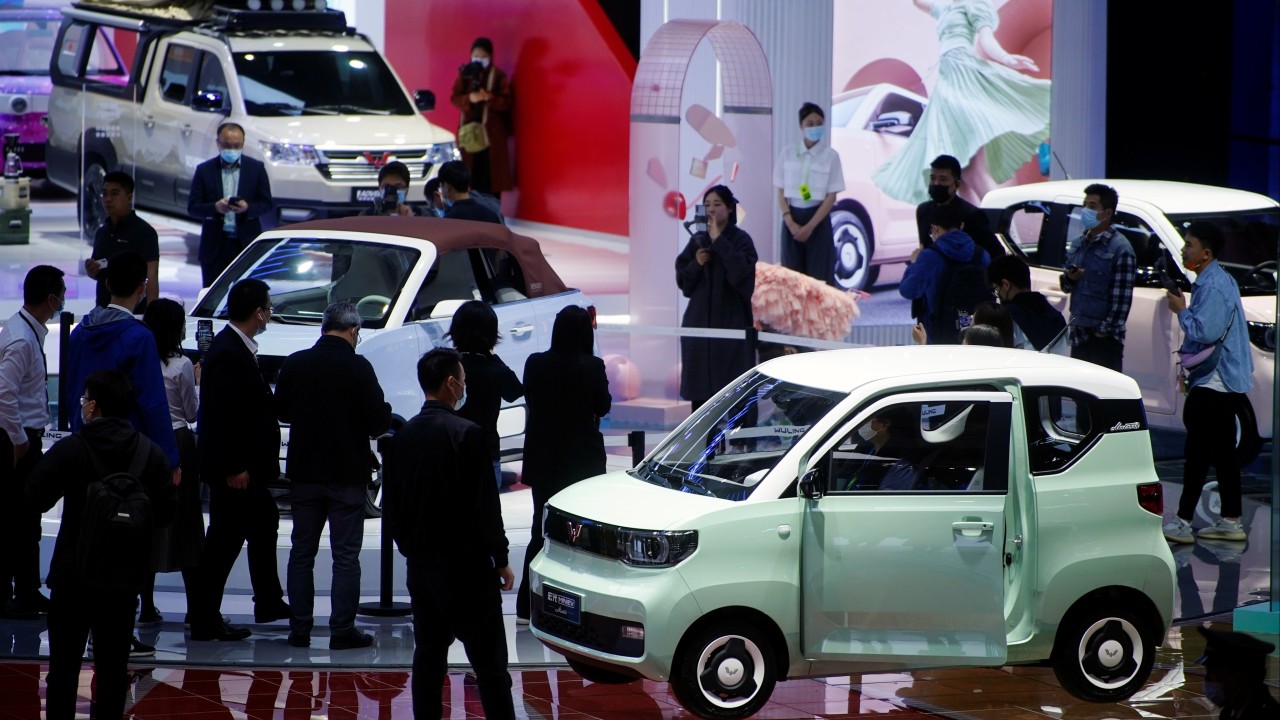
Three carmakers, including a General Motor’s (GM) venture, have priced their electric vehicles (EVs) below the 100,000 yuan (US$13,894) threshold in China, firing the first salvo in a price war that could reshape the country’s automotive sector.
“It is a critical year for new-energy vehicle companies in 2024 because of harsh competition,” said Cui Dongshu, general secretary of the China Passenger Car Association (CPCA). “Most car assemblers are set to offer discounts and engage in price wars to retain market share.”
BYD launches low-price plug-in hybrid, sparking price war in China
BYD launches low-price plug-in hybrid, sparking price war in China
On Monday, SAIC-GM-Wuling marked down the price of its Xingguang hybrid sedan by 6,000 yuan to 99,800 yuan, Changan slashed the price of its Qiyuan Q05 sport-utility vehicle (SUV) by 12,000 yuan to 73,900 yuan while Hozon discounted its Neta X SUV by 22,000 yuan to 99,800 yuan.
These reductions followed a move by BYD last weekend to offer an electric car priced below 100,000 yuan to take on best-selling petrol cars, such as Volkswagen’s Lavida and Toyota’s Corolla.
“Lower battery costs have enabled electric car makers to adopt pricing strategies that enable them to compete with petrol car manufacturers,” said Zhao Zhen, a sales director with Shanghai-based dealer Wan Zhuo Auto.
“Since more Chinese motorists now prefer electric cars to conventional petrol-powered vehicles, BYD and its EV counterparts will gain the upper hand … with price cuts.”
VW’s entry-level Lavida is priced at 94,000 yuan, and the basic Corolla sells for 122,800 yuan. In China, two out of every five new cars sold are now powered by batteries.
Cui said intelligent features on EVs, such as autonomous driving technology and sophisticated in-car entertainment systems, are winning over younger drivers. Meanwhile, budget-conscious drivers are now looking to buy low-priced EVs due to worries about job prospects and wages.
According to CPCA data, 284,000 cars priced between 50,000 yuan and 100,000 yuan were delivered to mainland customers in January, accounting for 14 per cent of total auto sales across the mainland.
However, Fitch Ratings warned last November that EV sales growth could slow to 20 per cent in China in 2024 amid economic uncertainties and intensifying competition.

